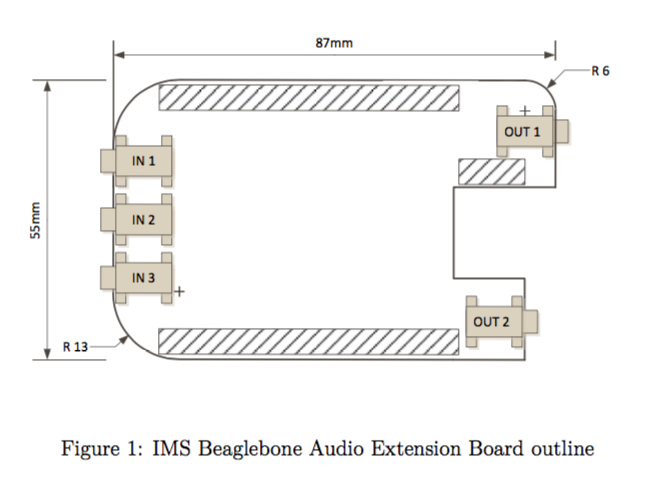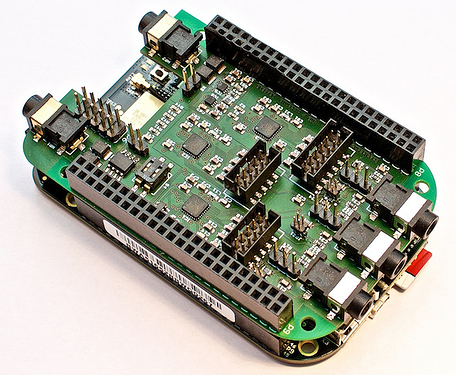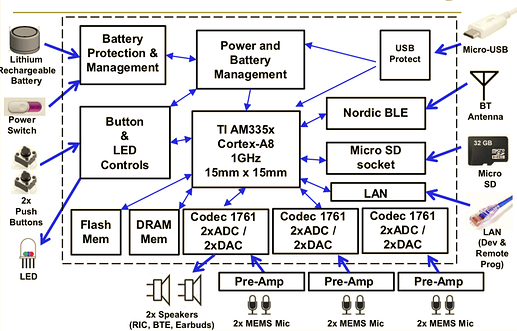About Cape4all
The Cape4all system is based on the Beaglebone Black or Beaglebone Black wireless single-board computer. A multi-channel audio interface board is provided as a “cape” for the BeagleBone Black. Its hardware design is available under an open-source license on Github and was developed by the Leibniz University Hannover in the Cluster of Excellence “Hearing4all” with a focus on low-latency multi-channel audio capabilities. In collaboration with Daniel James and Chris Obbard from 64Studio an ALSA sound driver was developed and a Linux system was optimized for low-latency, real-time audio processing with openMHA: Mahalia.
– Source: http://www.openmha.org/hardware&tools/
Images

Block diagram with three codecs and 6 input channels. (source)
Details
At the heart of the Audio Extension Board, there are three ADAU1761 low-power codecs from Analog Devices interconnected with the Sitara Multichannel Audio Serial Port (McASP) using a 3-input logic OR-Gate. The ADAU1761 is a SigmaDSP Stereo, Low Power, 96 kHz, 24-Bit Audio Codec with Integrated PLL.
ADAU1761 features
Each of the three codecs provides the following features:
- 24-bit stereo audio ADC and DAC: >98 dB SNR
- Sampling rates from 8 kHz to 96 kHz
- Flexible analog input/output mixers
- Stereo digital microphone inputs
- PLL supporting input clocks from 8 MHz to 27 MHz
- Microphone bias reference voltage
- Analog and digital I/O: 1.8 V to 3.65 V
- I2C and SPI control interfaces
- Digital audio serial data I/O: stereo (I2S) and time-division multiplexing (TDM) modes
- 32-lead, 5 mm × 5 mm LFCSP
- -40◦C to +85◦C operating temperature range
For more detailed information please refer to the ADAU1761 datasheet.
Board parameters
Supply Voltages
- 3.3V from Beaglebone headers P8 and P9
Internal Voltages from 3.3V supply
- 3.3V for configuration EEPROM
- 3.0V for audio codecs
- 1.0V for hearing aid dummies or microphone bias
Board components
- Audio (ADAU1761)
- Audio bus merger: 3-input logic OR-Gate (SN74LVC1G332DBVR)
- Power Management: Voltage Regulation (MAX8902A, MAX8902B)
- Memory: Beaglebone configuration EEPROM (CAT24C256)

